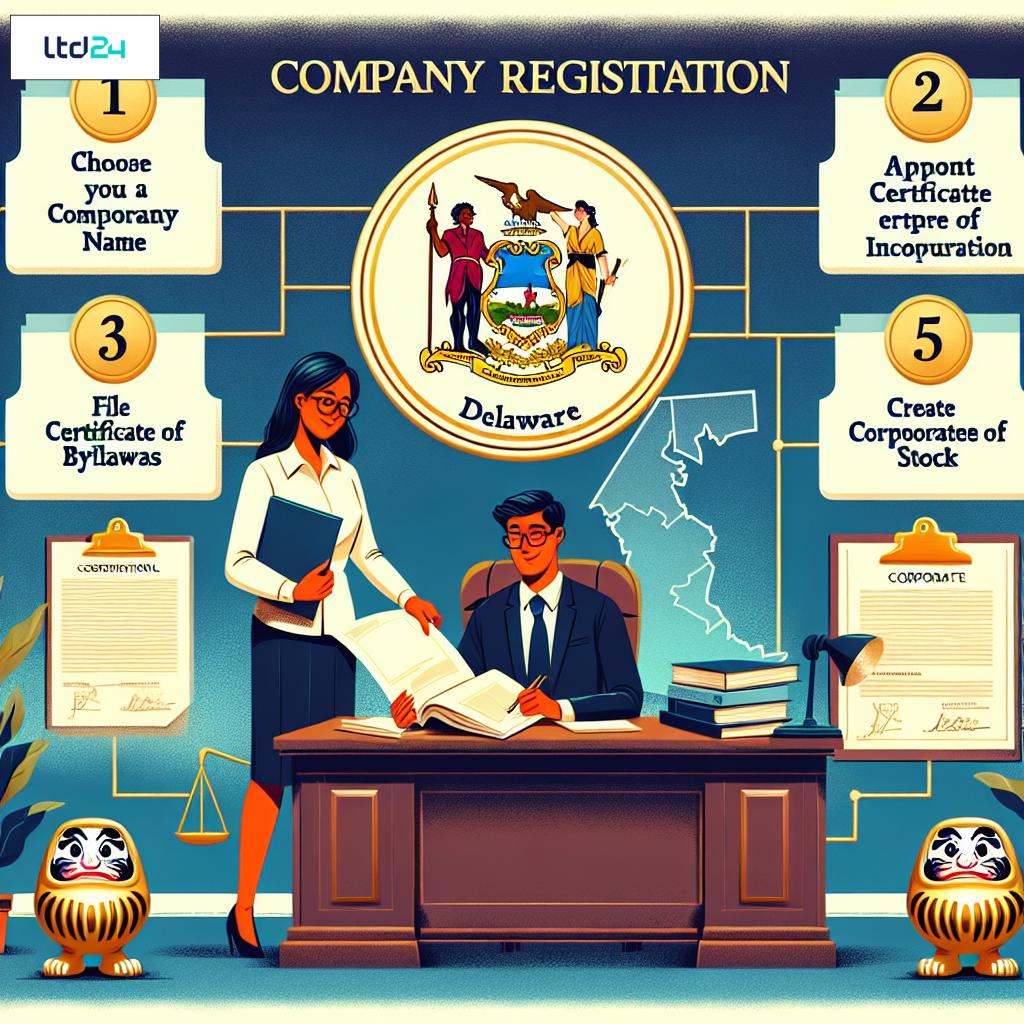Understanding the Scope of Annual Compliance Obligations
Annual compliance services represent a fundamental cornerstone for companies operating across international borders. These services encompass a comprehensive suite of statutory requirements that businesses must satisfy to maintain their legal standing within respective jurisdictions. The regulatory framework governing corporate compliance has witnessed substantial refinement in recent years, with tax authorities worldwide implementing increasingly sophisticated reporting mechanisms. Companies engaged in cross-border activities must navigate a complex web of filing obligations, statutory accounts preparation, corporate tax returns, and various declarations required by regulatory bodies. For businesses maintaining UK company structures, these obligations extend to Companies House filings, HMRC submissions, and adherence to the evolving standards of corporate governance mandated under UK company law.
The Critical Timeline: Managing Compliance Deadlines
Adherence to statutory deadlines constitutes an essential aspect of corporate compliance management. Each jurisdiction imposes its distinct timeline for various filings, creating a tapestry of dates that multinational entities must meticulously track. In the United Kingdom, for instance, private limited companies must file their annual accounts within nine months after their accounting reference date, while public companies face a more stringent six-month deadline. Concurrently, the confirmation statement (formerly known as the annual return) must be submitted within 14 days of the made-up date, which falls annually on the anniversary of incorporation or the anniversary of the previous statement’s made-up date. Corporation Tax returns typically align with the accounting period and must be filed within 12 months of the accounting period’s conclusion. Failure to meet these deadlines triggers automatic penalties, which escalate progressively with continued non-compliance. Comprehensive annual compliance services provide proactive deadline management, eliminating the risk of statutory breaches and associated financial implications.
Statutory Financial Statement Preparation: Beyond Basic Bookkeeping
The preparation of statutory financial statements represents a sophisticated exercise extending far beyond routine bookkeeping procedures. These documents must adhere to jurisdiction-specific accounting standards, which may include UK GAAP, IFRS, or other country-specific frameworks. The statements typically comprise a balance sheet illustrating the company’s financial position, a profit and loss account detailing operational performance, a cash flow statement tracing liquidity movements, and comprehensive notes providing contextual clarification and supplementary disclosures. For companies operating through UK limited structures, financial statements must comply with the Financial Reporting Standard 102 (FRS 102) or the Financial Reporting Standard for Smaller Entities (FRSSE), depending on the company’s classification. The preparation process necessitates professional accounting expertise to ensure compliance with recognition criteria, measurement principles, and disclosure requirements mandated by the applicable accounting framework.
Corporate Tax Compliance: Navigating Complex Calculation Methodologies
Corporate tax compliance constitutes a multifaceted exercise requiring specialized knowledge of tax legislation and computational methodologies. The process encompasses determination of taxable profits, application of relevant tax rates, identification of available deductions and reliefs, and calculation of the ultimate tax liability. For UK companies, the Corporation Tax Self Assessment (CTSA) regime requires businesses to calculate their tax liability through a methodical adjustment of accounting profit to arrive at the taxable profit figure. This process involves addressing permanent and timing differences arising from divergent treatment under accounting standards versus tax legislation. Considerations may include capital allowances, research and development expenditure, non-deductible expenses, and available loss relief. Professional tax advisory services provide critical guidance on optimizing tax positions within the legislative framework, ensuring both compliance and efficiency in a company’s tax affairs.
VAT Compliance Requirements: Quarterly and Annual Obligations
Value Added Tax (VAT) compliance encompasses recurring obligations that businesses must satisfy throughout the fiscal year. In the UK, VAT-registered entities typically submit quarterly returns to HMRC, detailing output tax charged on sales and input tax paid on purchases during the relevant period. The submission deadline falls one month and seven days after the end of each VAT accounting period. Additionally, certain businesses must complete an annual VAT reconciliation through the VAT Annual Accounting Scheme or address specific transactions through EC Sales Lists and Intrastat declarations when engaging in European transactions. The compliance landscape for VAT has undergone significant transformation with the implementation of Making Tax Digital (MTD), mandating digital record-keeping and electronic submission of returns through compatible software. Comprehensive compliance services ensure conformity with these technical requirements while optimizing VAT recovery positions within the legislative framework.
Director’s Responsibilities and Corporate Governance
Directors of limited companies bear substantial personal responsibilities regarding compliance obligations, with potential personal liability arising from breaches of statutory requirements. These responsibilities encompass ensuring accurate financial reporting, maintaining proper accounting records, filing returns and statements within prescribed deadlines, and implementing appropriate governance structures. The Companies Act 2006 codifies directors’ duties, including the duty to promote the company’s success, exercise reasonable care, skill, and diligence, and avoid conflicts of interest. For companies operating through UK limited structures, directors must actively engage with compliance matters rather than delegating responsibility entirely to service providers. Comprehensive compliance services support directors in fulfilling these statutory obligations, providing the necessary infrastructure and expertise to maintain robust corporate governance while mitigating personal risk exposure.
Payroll and Employment Tax Compliance
Businesses with employees must navigate complex payroll and employment tax regulations as part of their annual compliance regime. This encompasses the operation of PAYE (Pay As You Earn) systems, calculation and remittance of income tax and National Insurance contributions, administration of statutory payments and deductions, and submission of various returns to tax authorities. In the UK, employers must submit Full Payment Submissions (FPS) to HMRC each pay period, detailing employee payments and deductions. Additionally, an Employer Payment Summary (EPS) may be required to report any adjustments or to claim specific allowances. Annual requirements include the provision of P60 certificates to employees, submission of P11D forms for benefits in kind, and preparation of P35 employer annual returns. Comprehensive compliance services ensure accurate calculation of employment taxes, adherence to reporting deadlines, and appropriate classification of workers to minimize risk exposure in an increasingly scrutinized area of tax compliance.
Cross-Border Compliance: Managing International Reporting Requirements
Companies operating across multiple jurisdictions face the substantial challenge of satisfying divergent compliance requirements spanning numerous tax authorities and regulatory frameworks. This international dimension introduces complexities related to permanent establishment considerations, transfer pricing documentation, foreign income reporting, and withholding tax obligations. For UK companies with international operations, additional reporting may include the completion of foreign sections within Corporation Tax returns, submission of Country-by-Country reports for large multinational groups, and disclosure of overseas assets under various transparency initiatives. The OECD’s Base Erosion and Profit Shifting (BEPS) framework has significantly expanded cross-border reporting requirements, necessitating sophisticated compliance approaches to address complex matters such as cross-border royalties and intercompany transactions. Professional compliance services provide coordinated management of these multijurisdictional obligations, ensuring consistency in reporting across tax authorities and minimizing the risk of compliance failures.
The Register of Beneficial Owners: Transparency Requirements
Recent legislative developments have established mandatory disclosure of beneficial ownership information across numerous jurisdictions, representing a fundamental shift toward corporate transparency. In the UK, the Register of People with Significant Control (PSC Register) requires companies to identify and disclose individuals who own or control more than 25% of shares or voting rights, can appoint or remove directors, or otherwise exercise significant influence over the company. This information must be maintained in the company’s statutory records and filed with Companies House through the confirmation statement. Similar requirements exist in other jurisdictions, including the European Union’s Ultimate Beneficial Owner (UBO) registers and the Corporate Transparency Act in the United States. Professional compliance services ensure accurate identification and documentation of beneficial owners across corporate structures, maintaining up-to-date records as ownership changes occur and addressing the nuanced rules regarding indirect ownership through corporate vehicles.
Risk Management and Internal Controls in Compliance Frameworks
Effective annual compliance necessitates robust risk management frameworks and internal controls to prevent breaches and identify potential issues proactively. This systemic approach involves establishing clear responsibility lines, implementing checking mechanisms, maintaining comprehensive documentation, and conducting periodic internal reviews of compliance procedures. For companies with complex structures or high-risk activities, formal compliance committees may provide governance oversight, while designated compliance officers manage day-to-day implementation. Risk assessment methodologies identify areas of heightened compliance risk, allowing for targeted resource allocation and enhanced scrutiny where particularly necessary. Professional compliance services incorporate these governance elements, providing structured approaches to compliance risk management rather than merely addressing specific filing requirements. This comprehensive framework minimizes the likelihood of compliance breaches while demonstrating to regulatory authorities a commitment to good governance and responsible corporate citizenship.
The Digital Transformation of Compliance Procedures
The compliance landscape has undergone profound transformation through the digitalization of reporting processes and record-keeping requirements. Tax authorities worldwide have implemented electronic filing systems, replacing paper-based submissions with digital channels requiring structured data formats and real-time reporting capabilities. In the UK, HMRC’s Making Tax Digital initiative represents a cornerstone of this transformation, mandating digital record-keeping and electronic submission of returns across various tax regimes. This digital shift necessitates integration of compliance processes with accounting systems, implementation of compatible software solutions, and establishment of digital audit trails to substantiate electronic submissions. Professional compliance services have evolved to incorporate these technological dimensions, providing digital compliance solutions that address the technical requirements of modern tax authorities while maintaining the substantive accuracy of the underlying data.
OECD Common Reporting Standard and FATCA Requirements
The global drive toward financial transparency has manifested in supranational reporting regimes that impose substantial compliance obligations on entities with international dimensions. The OECD’s Common Reporting Standard (CRS) and the United States’ Foreign Account Tax Compliance Act (FATCA) establish extensive reporting requirements regarding financial accounts held by foreign tax residents. These regimes necessitate customer due diligence procedures, identification of reportable accounts, collection of specified information, and submission of reports to relevant tax authorities for international exchange. Financial institutions bear the primary burden of these requirements, but investment entities and certain holding companies may also face reporting obligations depending on their classification. Professional compliance services provide specialized expertise in navigating these complex frameworks, determining reportable status, implementing appropriate documentation procedures, and managing ongoing reporting obligations to prevent substantial penalties associated with non-compliance.
Economic Substance Requirements in Offshore Structures
Jurisdictions traditionally categorized as low-tax territories have implemented economic substance legislation in response to international pressure regarding harmful tax practices. These requirements mandate that companies conducting relevant activities demonstrate adequate substance within the jurisdiction, including appropriate levels of qualified employees, operating expenditure, physical presence, and decision-making. Affected activities typically include banking, insurance, fund management, financing, leasing, headquarters operations, shipping, intellectual property holding, and distribution activities. Companies must satisfy substance tests proportionate to their activities and provide annual reporting to local authorities documenting their compliance. Failure to meet these requirements may result in substantial penalties, exchange of information with other tax authorities, and potential removal from the corporate register. Professional compliance services for international structures must address these substance considerations, providing guidance on establishing and documenting appropriate levels of local substance or restructuring operations where necessary.
Transfer Pricing Documentation and Country-by-Country Reporting
Multinational enterprise groups face specialized compliance requirements regarding intercompany transactions and profit allocation across jurisdictions. Transfer pricing regulations mandate arm’s length pricing for related-party transactions, with documentation requirements including preparation of master files, local files, and country-by-country reports depending on group size and transaction materiality. These documents must demonstrate the commercial rationale for pricing methodologies, provide comprehensive functional analysis of relevant entities, and present benchmarking studies supporting the arm’s length nature of arrangements. For large multinational groups, country-by-country reporting provides tax authorities with visibility of global profit allocation, tax payments, employee headcount, and asset deployment across all operating territories. Professional compliance services offer specialized expertise in preparing this documentation, ensuring methodological consistency across jurisdictions while addressing the specific emphasis of local tax authorities in various territories.
The Intricacies of Foreign Branch Reporting
Companies operating through foreign branches rather than subsidiary entities face particular compliance complexity regarding the integration of branch operations into the head office reporting structure. This requires addressing permanent establishment determinations, attribution of profits to the branch operation, consideration of foreign tax credits for branch taxation, and appropriate presentation within financial statements. In the UK, companies must include branch operations within their main Corporation Tax return, providing supplementary pages detailing the branch profits, applicable foreign tax credits, and relevant tax treaty provisions. The computational methodology involves calculating branch profits according to UK tax principles while identifying items subject to different treatment under the branch jurisdiction’s rules. Professional compliance services provide specialized expertise in managing these complex calculations, ensuring appropriate profit attribution while maximizing available foreign tax credits to prevent double taxation.
Compliance Requirements for Specific Corporate Actions
Beyond routine annual filings, companies must satisfy specific compliance requirements when undertaking corporate actions such as share issuances, capital reductions, corporate restructuring, or dissolution. Each transaction carries distinct documentation and reporting obligations to both corporate registries and tax authorities. For UK companies issuing new shares, compliance requirements include preparation of board resolutions, updates to the register of members, issuance of share certificates, filing of return of allotments with Companies House, and potential stamp duty considerations. Similar procedural requirements apply to other corporate actions, with varying levels of complexity depending on the transaction nature and regulatory oversight. Professional compliance services provide transaction support for these corporate events, ensuring procedural correctness while addressing the tax implications and reporting obligations arising from structural changes to the company.
Special Purpose Vehicle Compliance Requirements
Companies established as Special Purpose Vehicles (SPVs) for specific projects or financing arrangements face unique compliance considerations reflecting their restricted activities and often complex ownership structures. These entities typically require carefully tailored compliance approaches addressing the specific requirements of their limited operational scope, potentially involving multiple jurisdictions and specialized regulatory frameworks. Common SPV applications include property holding structures, securitization vehicles, project financing arrangements, and joint venture mechanisms. Compliance frameworks for these entities must address the particular reporting requirements of their sector (such as the Alternative Investment Fund Managers Directive for certain investment structures), while maintaining operational separation necessary for bankruptcy remoteness or risk isolation. Professional compliance services provide specialized support for these technical structures, addressing their distinct compliance needs while ensuring adherence to the specific contractual obligations typically governing SPV operations.
Dormant Company Compliance Requirements
Even dormant companies without active trading operations maintain compliance obligations, albeit in simplified form compared to their active counterparts. In the UK, dormant companies must still prepare and submit abbreviated dormant company accounts to Companies House, file confirmation statements annually, maintain statutory registers, and notify relevant authorities of any changes to company officers, registered office, or people with significant control. The dormant status must satisfy the statutory definition, generally requiring absence of significant accounting transactions during the relevant period. Maintaining proper dormant status may provide administrative benefits through simplified filing requirements and potential exemption from audit requirements, corporation tax returns, and VAT registration. Professional compliance services for dormant entities ensure preservation of proper dormant status while satisfying the continuing administrative requirements these companies must meet to remain in good standing.
Audit Requirements and Thresholds Across Jurisdictions
Statutory audit requirements vary significantly across jurisdictions, with different criteria determining which companies must undergo independent examination of their financial statements. In the UK, companies may claim audit exemption if they satisfy specified size criteria, currently requiring satisfaction of at least two of the following conditions: annual turnover below £10.2 million, balance sheet total below £5.1 million, and average employees below 50. However, public companies, regulated entities, and companies within certain sectors face mandatory audit requirements regardless of size. Subsidiary companies may claim exemption through parent company guarantees under specific circumstances. Professional compliance services provide guidance on applicable audit requirements across relevant jurisdictions, managing the audit process where required and implementing appropriate accounting controls to facilitate effective audit procedures.
Penalties and Enforcement: The Consequences of Non-Compliance
Tax authorities and corporate registries have implemented increasingly stringent penalty regimes to address compliance failures, with potential consequences extending beyond financial penalties to include criminal prosecution in cases of deliberate non-compliance. In the UK, late filing penalties for company accounts begin at £150 for statements less than one month overdue, escalating to £1,500 for private companies and £7,500 for public companies more than six months late. Similar escalating penalty structures apply to tax returns, with additional interest charges and potential surcharges for payment delays. Beyond these automatic penalties, tax authorities may impose more substantial penalties for inaccurate returns based on the behavior giving rise to the inaccuracy, ranging from 30% for careless errors to 100% for deliberate and concealed inaccuracies. Professional compliance services minimize exposure to these penalties through timely submission of accurate returns, maintaining proper documentation to evidence reasonable care, and implementing robust review procedures to identify potential errors before submission.
Seeking Expert Assistance: The Value of Professional Compliance Support
The intricate nature of compliance obligations across multiple jurisdictions demands specialized expertise that typically extends beyond the internal resources of most international businesses. Engaging professional compliance providers offers numerous advantages, including access to specialized knowledge regarding jurisdiction-specific requirements, systematic tracking of filing deadlines across multiple entities, standardized documentation approaches ensuring consistency across corporate structures, and ongoing monitoring of regulatory changes affecting compliance obligations. This professional support enables businesses to maintain focus on their core operational activities while ensuring compliance matters receive appropriate attention from qualified specialists familiar with the technical requirements of diverse regulatory frameworks. The cost of professional compliance services represents a prudent investment compared to the potential financial penalties, reputational damage, and management distraction arising from compliance failures.
Your Next Steps: Securing Comprehensive Compliance Support
Maintaining robust annual compliance across international operations demands proactive planning and specialized expertise. At LTD24, our compliance specialists deliver comprehensive solutions tailored to your company’s specific jurisdictional footprint. Our integrated approach addresses every aspect of your compliance obligations, from statutory filings to complex cross-border reporting requirements.
If you’re seeking expert guidance to navigate international tax challenges, we invite you to book a personalized consultation with our team. We are a boutique international tax consulting firm with advanced expertise in corporate law, tax risk management, asset protection, and international audits. We offer tailored solutions for entrepreneurs, professionals, and corporate groups operating globally.
Book a session with one of our experts now at $199 USD/hour and receive concrete answers to your corporate and tax inquiries. Schedule your consultation today.










